| Infrequently Seen |
Spring: Olive-sided Flycatchers are uncommon visitors to the Washington metro area, and they are seen at Monticello Park only about one out of every three years.
Fall: An Olive-sided Flycatcher has never been recorded at Monticello during the fall.
Where to See Them in the Park
On the rare occasions when an Olive-sided Flycatcher is at Monticello, it usually is on a bare branch at the top of a tall dead tree. There is no best time to look for one.
Physical Description
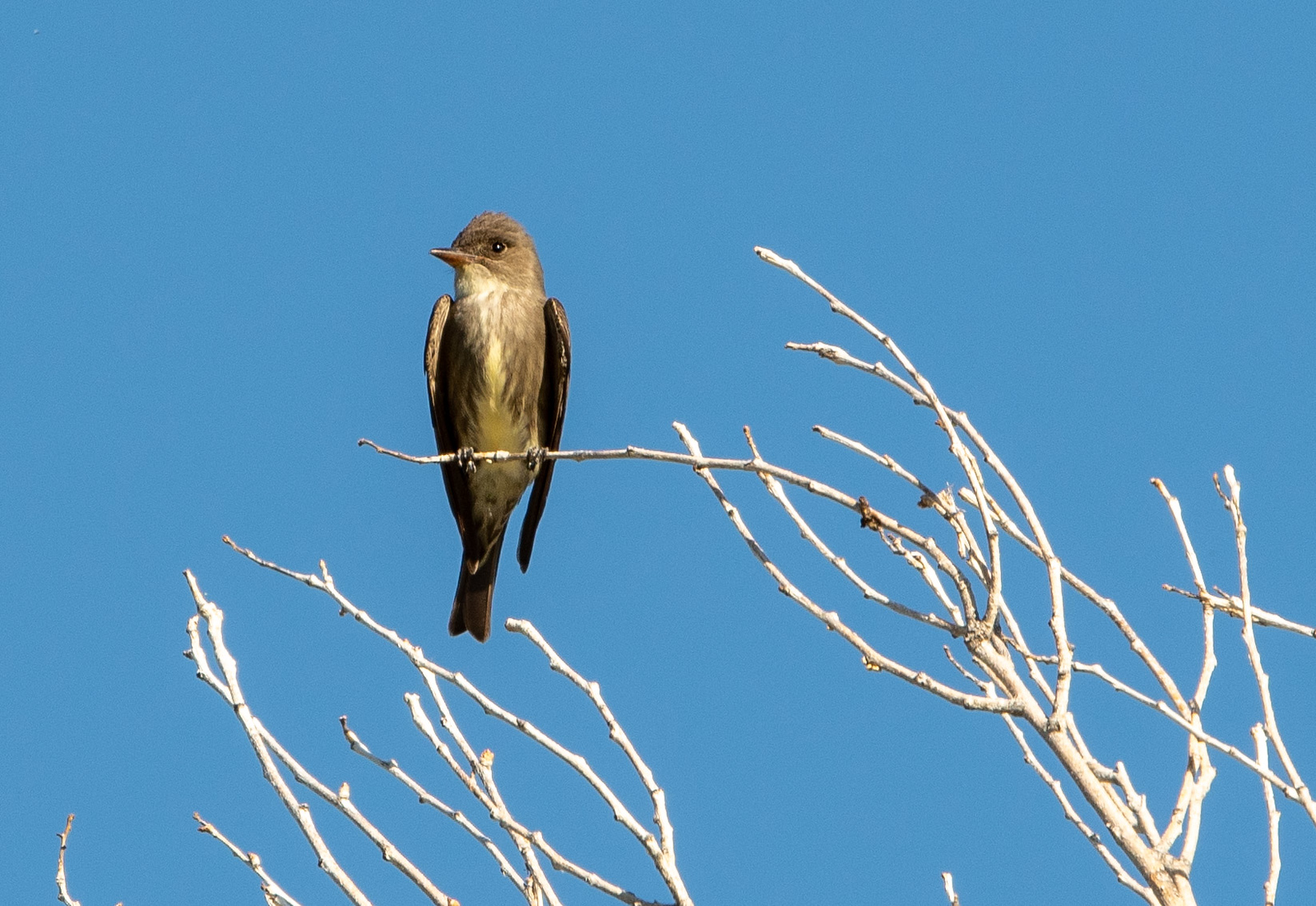
The breast of the Olive-sided Flycatcher has a broad central lemony line, and the olive sides are long vertical streaks which border the central line on each side. The sexes are similar.
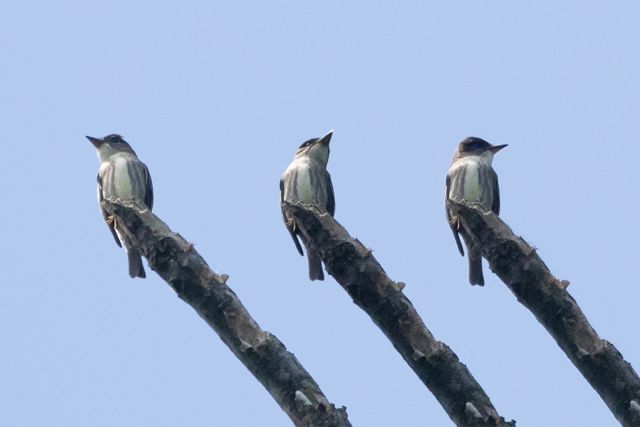
In May, 2017, an Olive-sided Flycatcher visited Monticello. This composite photo shows three images of the underparts.
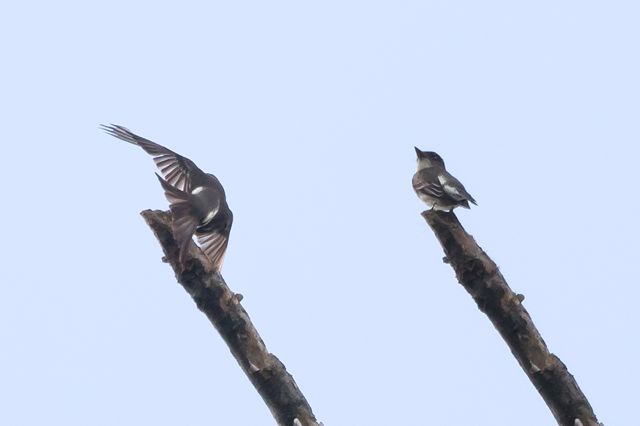
The rump has white tufts on each side. A birder who used to visit the park referred to these tufts as "white fluffies".
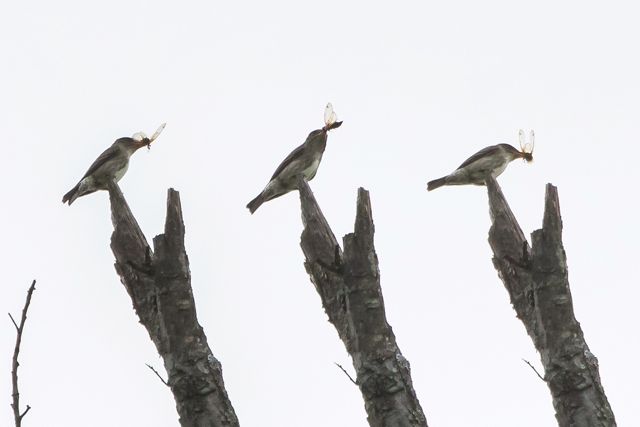
Olive-sided Flycatchers hawk insects from high open perches. The 2017 bird at Monticello caught a cicada and swallowed it, wings and all.
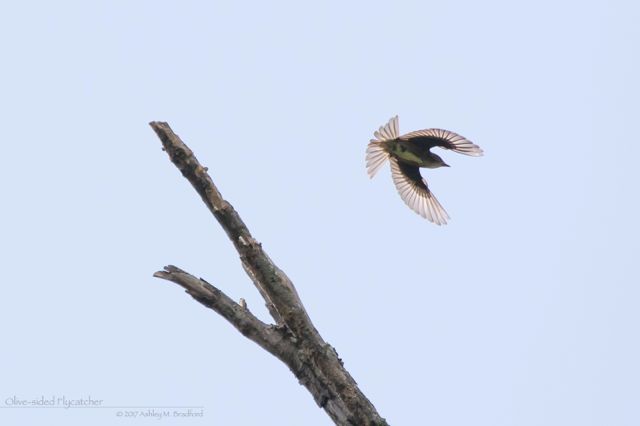
This photo shows the wing and tail feathers while it was hawking insects.
Vocalizations
The song of the Olive-sided Flycatcher has one of the best-known bird mnemonics — a loud, emphatic QUICK, THREE BEERS!.
Hear the song of the Olive-sided Flycatcher.
Notes
Mnemonics can help people to remember birdsong, because many people more easily remember words than sounds. Sometimes, a species can have more than one mnemonic for the same song, because different people can hear the same sounds differently.
Origin of Names
Common Names: Olive-sided from their plumage. Flycatcher because they catch flies.
Genus Name: Contopus means short foot, from their small feet.
Species Name: Cooperi after the American naturalist William Cooper.
Olive-sided Flycatcher video footage
Return to the Index
